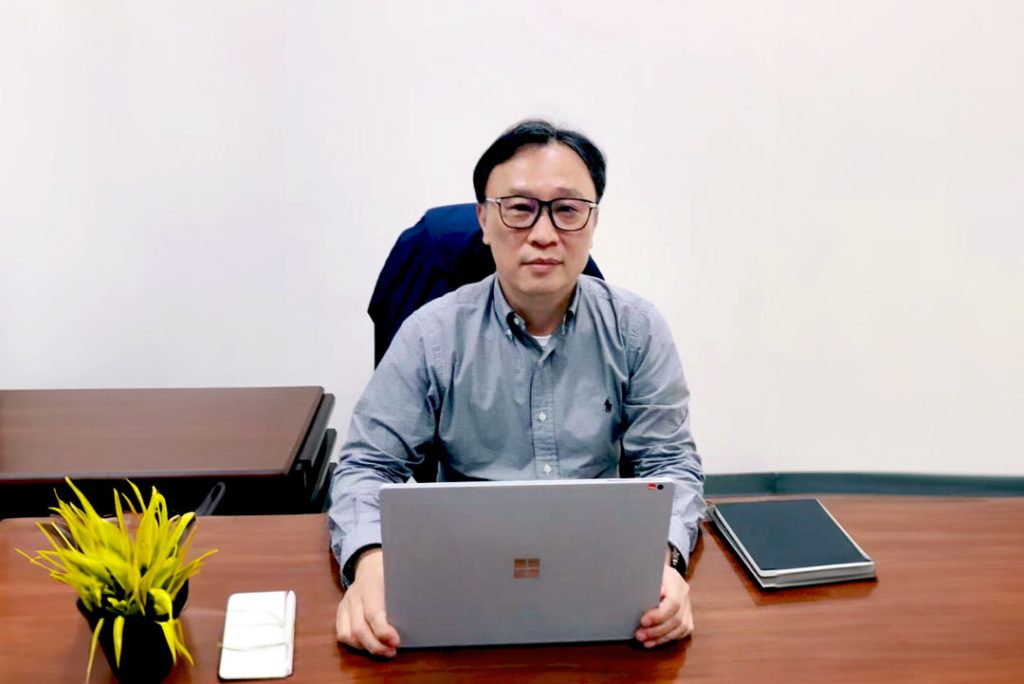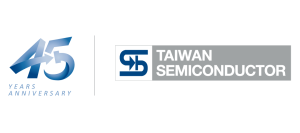TSC 45th Anniversary
Interview with TSC People

About TSC
1. How personally significant is the 45th anniversary of TSC to you?
We have experienced several major production transfer projects of the company, from Yilan to Shandong. At that time, the infrastructure outside the Shandong factory was undeveloped, and communication and financial services were in their initial stages. In addition to the construction of factory equipment, we also spent a lot of effort to build infrastructure in the local area so that factory employees could be taken care of, and we actively collided with the local culture and atmosphere. It was a very tough process. However, the foundation was laid in the early stage made Shandong factory grow rapidly, and it also provides a good example for the subsequent establishment of the Tianjin factory.
2. What is a fun, memorable moment you’ve had at TSC?
In the early days of the establishment of the Shandong and Tianjin factories, information was not as easy to obtain as it is today with the Internet and mobile phones. Whether it was technical knowledge or teaching materials for employees, everything relied on books. In this case, when we traveled between the two sides of the strait, we often acted as “international porters” to overcome the situation where information was not easy to obtain at that time.
About TSC Fab
1. What distinguishes TSC from other semiconductor manufacturers, leading to the decision to build factories in Yi-Lan and Li-Je rather than Hsinchu Science Park?
When the company was founded, the investment environment in Taiwan was very difficult. Our founder, Arthur Wang started from scratch, with a small scale and limited resources. In the initial state we can’t get offer from investment funds and loans, TSC chose to set up a factory in the Arthur Wang’s hometown Yilan due to the convenience of the geographical location.
2. With the expansion into Shandong and the implementation of automation systems, what lessons have you learned?
No matter what kind of changes we go through, the most important thing is to go back to “people and talents”. Arthur Wang insists on seeing the big picture from a small detail and paying attention to even the smallest things about employees and customers. For example, taking care of the employees’ lives so that they can work with peace of mind at TSC. For customers, regardless of industry or size, we provide the same service without any difference. Internally and externally, TSC has established a solid platform for the cultivation and communication of “people”. Facing the changes in production, even though the automation equipment has become mature, there still needs “people” to evaluate and adjust the hardware and software construction.
Because TSC has the experience of building trust, communication, and cultivation between people, we can calmly face the changes in the environment. Therefore, we often say that if “people” are stable, manufacturing and products will be stable and successful.
3. What strategies have proven effective in maintaining operational efficiency and product quality during rapid scaling?
We are constantly improving ourselves to stay ahead of the curve. In the early days, we also read a lot of books to find the most suitable management and production methods for the factory. We transform this knowledge into simple language and communicate it to our factory partners, so that the overall operation of the factory can be smooth and consistent.
4. Looking back at the technological advancements since you joined TSC, what innovations or changes in semiconductor manufacturing have impressed you the most, and how has TSC adapted to stay competitive in the dynamic industry landscape?
At first, the concept of introducing automation equipment seemed very simple. The reason behind this idea was the manpower shortage. Later, we realized that automation is not just the automation of equipment, but also the integration of software to achieve true automation, including production automation, testing automation and system automation. Under the same turnover, the number of people required after the introduction of automated production has been reduced from 1,500 to 500. In addition to automatic processes and data generation, machines can also do basic analysis and judgment. This is what we are working hard to achieve – Smart production.
5. In your perspective, what kind of influence do you anticipate AI will have on the manufacturing processes of semiconductors?
The trend of AI is absolutely unstoppable. To meet this wave, we have also established an automation department at the factory, targeting to achieve AI intelligent production in the future. In addition to production and testing, the entire system needs to be automated, and we will independently develop modules to adapt to the needs of our own factory. An automation engineer can replace three operators, making the data analysis results generated by machines more and more intelligent. In the end, it will not be judged by humans, but AI will provide suggestions, and humans only need to decide whether to agree or not.
6. The semiconductor industry is known for its rapid pace of innovation. How does TSC foster a culture of continuous learning and adaptation within its manufacturing teams to keep up with technological advancements and industry trends?
Honesty and flexibility are two of TSC’s greatest strengths. Regardless of the scale of demand, if it is TSC’s customers, we will do our best to provide services. If customers have special needs, we can flexibly adjust to assist and provide the highest level of customized service. At the factory, the ability to respond to change is the basic and most necessary DNA, because plans always cannot keep up with changes. The production of the factory needs to be developed according to customer needs. I believe that TSC can respond quickly to changes.
7. What overarching vision does TSC have for the next 5 years, and how does the company plan to achieve its goals during this period? Are there particular milestones or strategic initiatives that TSC aims to accomplish in the coming years to propel its growth and success?
TSC’s four factories each play a different role, and the time of their establishment varies. However, in terms of production, the yield and quality of all factories pursue the same standard. In terms of the goal of expecting common progress, we will strengthen the information flow between factories, make intelligent automation production more comprehensive, and cleverly use the accumulated data and experience of TSC to create excellent production competitiveness.
About Helen Wang & Keller Yen
Tell us an interesting fact about yourself.
Keller , Fab. Department Vice President: I love reading, especially literature books. I am fascinated by them. But now, in addition to literature, I will also read other types of books, such as management and trends. Reading has a great impact on life and life.
Helen, Fab. Department Senior Vice President: I also love reading. I have a complete set of Jin Yong’s books on my bookshelf. The books I read will also be varies in different moods and situations. But now Cookbooks are the type of book I have the most of. I am a foodie and I like to take people to my favorite restaurants to eat. When everyone is happy, I am also very happy.

© Copyright 2026 Taiwan Semiconductor Co., Ltd.
- Cookie Settings
- Website Feedback
- Privacy Policy
- Terms of use
- Terms & Conditions


